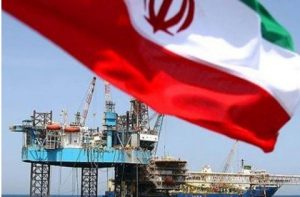
30 October 2018, News Wires — Shortly after U.S. President Donald Trump announced in May he would reimpose sanctions on Iran, the State Department began telling countries around the world the clock was ticking for them to cut oil purchases from the Islamic Republic to zero.
The strategy is meant to cripple Iran’s oil-dependent economy and force Tehran to quash not only its nuclear ambitions, but this time, its ballistic missile program and its influence in Syria.
With just days to go before renewed sanctions take effect Nov. 5, the reality is setting in: three of Iran’s top five customers – India, China, and Turkey – are resisting Washington’s call to end purchases outright, arguing there are not sufficient supplies worldwide to replace them, according to sources familiar with the matter.
That pressure, along with worries of a damaging oil price spike, is putting the Trump administration’s hard line to the test and raising the possibility of bilateral deals to allow some buying to continue, according to the sources.
The tension has split the administration into two camps, one led by National Security Adviser John Bolton, who wants the toughest possible approach, and another by State Department officials keen to balance sanctions against preventing an oil price spike that could damage the U.S. and its allies, according to a source briefed by administration officials on the matter.
The global price of oil peaked just below $87 a barrel earlier this month, before easing back to their current level around $77 a barrel on Monday. Because of the concern over oil prices, the source said, the administration is considering limited waivers for some Iranian customers until Russia and Saudi Arabia add additional supply next year, while limiting what Tehran can do with the proceeds in the meantime.
- Reuters



